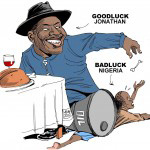2.2 Weaker democracy
Out of all the natural resources, an abundance of petroleum has been shown to accompany a deterioration of democratic values and processes, while increasing authoritarian rule (Wright, Frantz and Geddes, 2015). Two of the main causes for this are attributed to:
- i.Weak and ineffective institutions – many scholars point to the quality and strength of institutional arrangements as a key determinant of the resource curse. Extractives can be relatively easily managed outside of formal budgeting processes, giving opportunities for exploitation by elites and companies (NRGI, 2015). If institutional capacity has been starved of investment then the ability to regulate, monitor and effectively draw benefit from rents is significantly reduced (Olagunla et al., 2014).

- ii.Corruption and rent seeking – these are frequently cited causes of the resource curse. ‘Politicians or government officials can purposefully dismantle societal checks or create new regulations to get access to these resources or to provide access to friends or family, a process nicknamed rent-seizing’ [italics in original] (NRGI, 2015). The issue of kickbacks on deals or developing patronage networks to maintain power through oil rents have been associated with successive regimes in Nigeria. Former President Goodluck Jonathan was embroiled in a scandal in 2017, accused of taking a $200 million bribe for awarding a prospecting license to Malabu Oil. Likewise, the Obasanjo administration (1999–2007) was hit with multiple allegations of corruption surrounding oil block allocation to IOCs.
